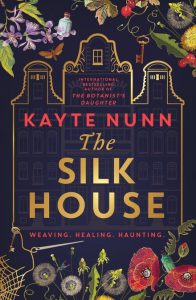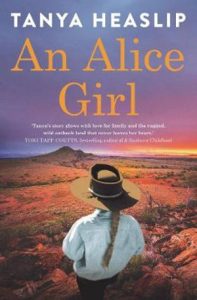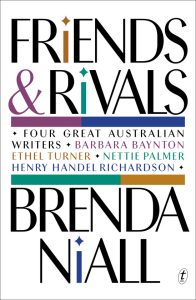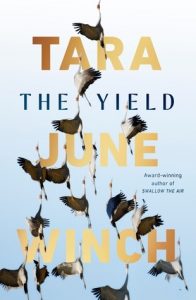And so we reach the end of the first half of what has been the weirdest year in a long time (not to mention the worst year for me in a long time.) Nonetheless, we are still reading and so I have a monthly round-up for you.
(Not so) Jolly June
 It seems that most of us, like me, have struggled to keep up your reading schedules given the uncertainty we are living under. Forty-one reviews were posted in June, compared with 54 last month, and a whopping 76 last June. Given the year we’ve had – and looking at my own reading – I am more than happy with 41! Here are the usual highlights:
It seems that most of us, like me, have struggled to keep up your reading schedules given the uncertainty we are living under. Forty-one reviews were posted in June, compared with 54 last month, and a whopping 76 last June. Given the year we’ve had – and looking at my own reading – I am more than happy with 41! Here are the usual highlights:
- Our most reviewed author was Imbe Neeme with three reviews
- Our most reviewed books was Imbe Neeme’s The spill.
- Our top reviewer was Jackie (GoodReads) with 9 reviews.
The Classics
No reviews were posted for Classics this month, but as is my practice, I am leaving this place marker here as a reminder to us all (especially to me.)
History/Memoir/Biography
Three of June’s literary books were in the History/Memoir/Biography genre. They are an interesting selection of books, so I’ve decided to focus on them this month. Two are memoirs, while the other is biography.
 First up is Tanya Heaslip’s An Alice girl. It was reviewed by Veronica of The Burgeoning Bookshelf. The book is about growing up on a vast and isolated cattle property just north of Alice Springs. It is, says Veronica, a story of “hardship, endurance, determination and ultimately triumph over the elements to make a living in the harshest of conditions”.
First up is Tanya Heaslip’s An Alice girl. It was reviewed by Veronica of The Burgeoning Bookshelf. The book is about growing up on a vast and isolated cattle property just north of Alice Springs. It is, says Veronica, a story of “hardship, endurance, determination and ultimately triumph over the elements to make a living in the harshest of conditions”.
Next, alphabetically speaking, is Chloe Higgins’ The girls, reviewed by this month’s top reviewer, Jackie. Another memoir, Higgins’ book, says Jackie, is not only about grief but it also grapples with some of the challenges of memoir writing (which I like to see):
The Girls also a book about writing as a means of getting through trauma, with a self-reflexive voice that shows process through the inclusion of editorial comments and reader remarks. Higgins demonstrates how she deals with some of the key issues memoir writers face: unreliable memory and balancing differing accounts of the same event; and the big one – the impact your words might have upon living people you’re writing about.
Finally, Brenda Niall, who is one of Australia’s best regarded living biographers, has most recently written about four of Australia’s early women writers – Ethel Turner, Barbara Baynton, Henry Handel Richardson and Nettie Palmer.
Reviewer, the historian Janine Rizzetti (The Resident Judge of Port Philip) describes it as follows:
This book is more a quartet of essays rather than one integrated study. Indeed, it might be more appropriate to speak of two twinned biographies, as she was able to pinpoint a documented link between Turner and Baynton, and likewise between Richardson and Palmer in a literary quest of degrees-of-separation.
 In her review, she discusses both the four writers and what the book says about them, but she also talks a little about the art of biography writing and what she thinks Niall has achieved (or not) in this book. If you are not familiar with these classic Australian writers, or if you are interested in the genre of biography, it may be worth reading this biography as an introduction.
In her review, she discusses both the four writers and what the book says about them, but she also talks a little about the art of biography writing and what she thinks Niall has achieved (or not) in this book. If you are not familiar with these classic Australian writers, or if you are interested in the genre of biography, it may be worth reading this biography as an introduction.
Awards News
Just one award announcement was made in the last month, but it’s the shortlist for the big one…
Miles Franklin Shortlist
 Three of the six shortlisted books are by women:
Three of the six shortlisted books are by women:
- Peggy Frew’s Islands
- Carrie Tiffany’s Exploded View
- Tara June Winch’s The Yield
All of these have been reviewed for the challenge, with both Tiffany and Winch being reviewed this month. Both of the reviews were by Maureen Helen.
Exploded view is a tough book, dealing as it does with child abuse, but Maureen Helen writes that :
Carrie Tiffany’s writing is poetic, spare and intensely sensual. She builds the story and the tension through short snippets, most no longer than a paragraph separated from the next. The girl’s thoughts, images and actions follow each other in quick succession.
The beauty of the writing and the frequently unexpected humour offset the dark themes of this novel.
 Maureen Helen likes to comment on the writing and style, as well as on the content, when she reivews. Of Tara June Winch’s The yield she writes about the structure:
Maureen Helen likes to comment on the writing and style, as well as on the content, when she reivews. Of Tara June Winch’s The yield she writes about the structure:
At first glance, the structure of The Yield appears somewhat complicated structure. However, the three intertwined points of view or stories soon begin to resonate. Together, they create a deeply satisfying whole.
I agree. If you haven’t read it yet, do consider it. You will not, I believe, be disappointed.
———————
About Me
I am Whispering Gums and I read, review and blog about (mostly) literary fiction. It was reading Jane Austen when I was 14 years old that turned me on to reading literary fiction/classics, which is why I am here today doing this round-up! Little did Jane know what she started!
My love of Aussie literature started with Banjo Paterson’s ballads and Ethel Turner’s Seven Little Australians in my childhood. But, I didn’t really discover Australian women’s writing until the 1980s when I fell in love with Elizabeth Jolley, Thea Astley, Olga Masters, Helen Garner and Kate Grenville. Ever since then I have been included a good percentage of Australian (and other) women writers in my reading di





Yes, this has been a weird and not so jolly time for most us. The range of emotions going from heartache to boredom for many of us.
I’m reading so many books at once, (I am breaking all sorts of personal records about how many books I have on the go at once), but my mood is so different every day that I have to have at least 7 books going to find one each night that matches where I am that day.
In about a week’s time I will suddenly have about 5 reviews to write!
Take care Sue & thanks for this latest round up post.
Hmm… I replied to this from my iPhone but it doesn’t seem to have “taken”. Thanks Brona. Very weird times. Obviously my reading is very slow, but I can understand that most people are discombobulated in various ways.
I look forward to seeing your five reviews (if I can find the time to read them!!)